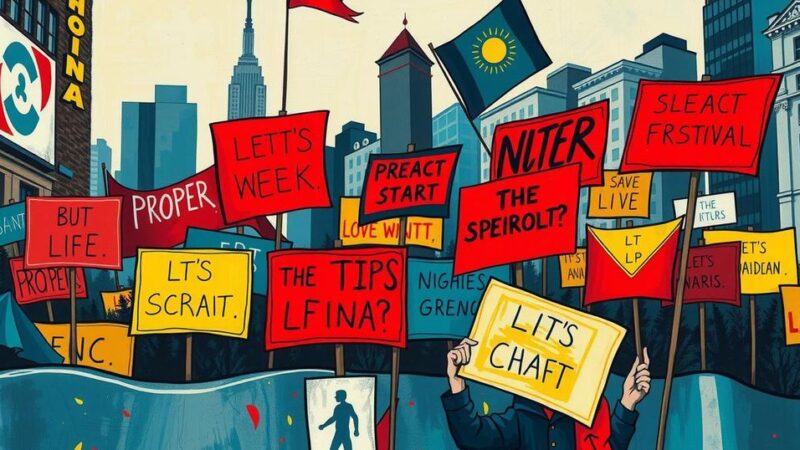A rally in Saipan gathered over 250 supporters of ex-President Rodrigo Duterte, seeking his release from ICC custody. Organisers called for national upliftment and emphasized Duterte’s positive legacy, while critics argued for accountability regarding his alleged human rights violations. The event reflects broader tensions regarding leadership accountability in the Philippines.
A recent rally in Saipan saw over 250 supporters of ex-Philippines President Rodrigo Duterte calling for his return from the Netherlands, where he is under the authority of the International Criminal Court (ICC). Organized by Marie Zayko and Roderick Lopez, the event was held in celebration of Duterte’s birthday and demonstrated a unified voice for his supporters. Zayko emphasized their demand for Duterte’s release, asserting his positive impact during his presidency.
Lopez expressed gratitude to attendees and reassured that further rallies would ensue, urging the Marcos administration to prioritize navigating the situation for the people of the Philippines. Zayko reiterated her plea to the ICC, contending that Duterte has aided numerous citizens. She stated, “Duterte is a good president. Please, he helped a lot of people.”
Concerns surrounding the legality of Duterte’s detention were voiced by Lopez, who claimed that the ICC’s actions are unlawful since the Philippines withdrew from the ICC in 2019. The backdrop of this rally includes Duterte’s arrest in March under an ICC warrant for alleged crimes against humanity related to his controversial drug war.
Supporters, including Joven Merin and Jerry Soriano, shared personal testimonies reflecting their admiration for Duterte’s methods. Merin celebrated his past contributions in community reform efforts, while Soriano also called for Duterte’s safe return. The rally commenced with attendees sporting specially designed white and green T-shirts, indicating their solidarity.
Romeo Malasarte remarked that Duterte’s authorization of his arrest signifies a troubling precedent for Philippine sovereignty, emphasizing the broader implications of allowing foreign influence on national leadership decisions. He claimed this situation transcends simple political divisions and is a matter of national dignity.
On the contrary, critics of Duterte in Saipan asserted that the ICC acted rightly in detaining him based on credible allegations of heinous acts during his administration, particularly highlighting reported extrajudicial killings. Joselito Espino highlighted the inconsistency in demanding due process for Duterte while victims of his policies receive no justice.
Darwin Gonzales stated the apprehension of Duterte was justified, citing adherence to due process as the ICC followed lawful procedures despite the Philippines’ non-membership. Regardless of the outcome of Duterte’s trial, Gonzales affirmed faith in a judicial process where he could defend himself.
The rally in Saipan reflects deep divisions regarding ex-President Rodrigo Duterte’s legacy, with supporters calling for his release from ICC custody while critics emphasize the need for accountability for alleged human rights violations. The event showcased a fervent expression of loyalty among Duterte’s followers, yet it simultaneously underscored serious concerns surrounding the rule of law, national sovereignty, and the pursuit of justice for victims of his controversial policies. This unfolding situation presents a complex dynamic balancing loyalty, legality, and human rights.
Original Source: www.rnz.co.nz






